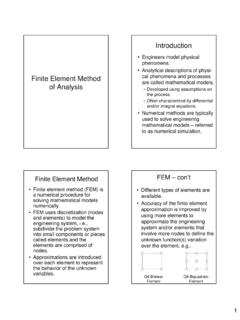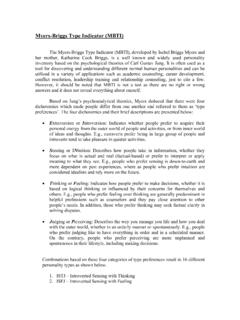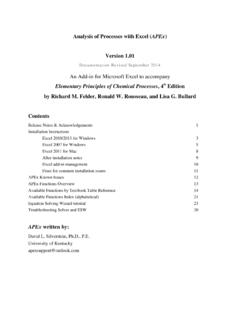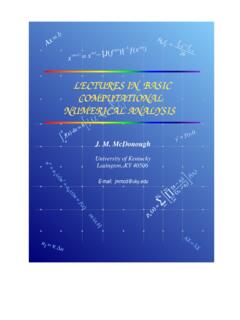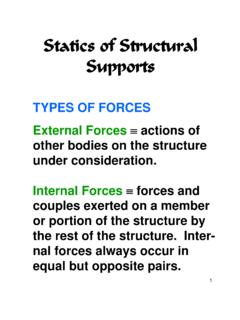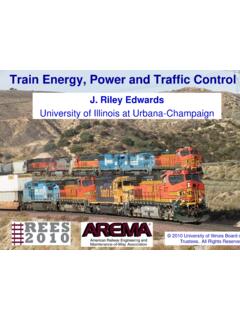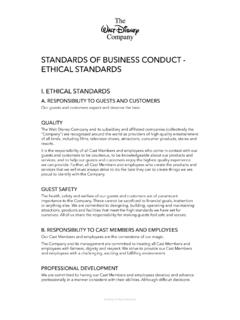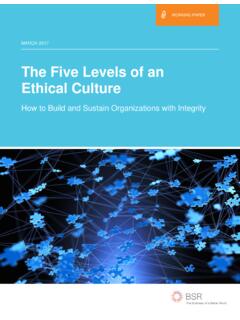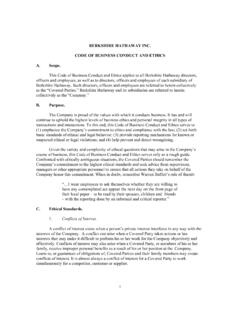Transcription of MAKING ETHICAL DECISIONS - University of Kentucky
1 MAKINGETHICALDECISIONSJOSEPHSON INSTITUTE OF ETHICAL DECISIONSJOSEPHSON INSTITUTE OF OF CONTENTSINTRODUCTION1. MAKING SENSE OF ETHICS What Is Ethics? The Importance of Universality When Values Collide From Values to Principles Ethics and Action Why Be ETHICAL ?2. THE SIX PILLARS OF CHARACTER Trustworthiness - Honesty - Integrity - Reliability (Promise-keeping) - Loyalty Respect - Civility, Courtesy and Decency - Dignity and Autonomy - Tolerance and Acceptance Responsibility - Accountability - Pursuit of Excellence - Self-Restraint Fairness - Process - Impartiality - Equity Caring Citizenship3. GROUNDWORK FOR MAKING AN EFFECTIVE DECISION Taking Choices Seriously Recognizing Important DECISIONS Good DECISIONS Are Both ETHICAL and Effective Example: Suzy and Sue Discernment and Discipline Stakeholders Example: Charlie and the "Harmless" Prank4.
2 THE SEVEN-STEP PATH TO BETTER DECISIONS 1. Stop and Think 2. Clarify Goals 3. Determine Facts 4. Develop Options99 5. Consider Consequences 6. Choose 7. Monitor and Modify5. OBSTACLES TO ETHICAL DECISION MAKING : RATIONALIZATIONS If It's Necessary, It's ETHICAL The False Necessity Trap If It's Legal and Permissible, It's Proper It's Just Part of the Job It's All for a Good Cause I Was Just Doing It for You I'm Just Fighting Fire With Fire It Doesn't Hurt Anyone Everyone's Doing It It's OK if I Don't Gain Personally I've Got It Coming I Can Still Be Objective6. BEING THE PERSON YOU WANT TO BE Where Does Character Come From? On Happiness100 INTRODUCTIONSay you are the widowed parent of three children.
3 You have no immediate family or close friends. A severerecession has left you jobless for 18 months. Your skills are not in demand. Six months ago you started lookingoutside your field, increasingly willing to take anything. But even minimum wage positions were scarce and didnot pay enough for one person to live on, much less four. You re deep in debt and have filed for stress has triggered your diabetes; you have no medical coverage. You are three months overdue on the rentand have been served with an eviction notice. You ve been trying to keep a cheerful, hopeful attitude for yourchildren, who so far don t know the extent of the family s a job you applied for 12 months ago has come up. The salary is higher than any you ve ever received andthe benefits package would cover your whole family.
4 You are told the choice is between you and one otherperson, but you have to swear in writing that you have never taken illegal drugs. Trouble is, you have. You usedto smoke marijuana, not a lot, but regularly. You have never taken any other illegal drug and you don t usemarijuana anymore either but that hasn t changed your opinion that it is absurd and hypocritical thatmarijuana is illegal while alcohol and nicotine which every year kill millions and cost society billions aren , do you lie on the application?Few choices we face are so difficult, but you get the point: being ETHICAL isn t always easy. Yet it is alwaysimportant. For we live with a common truth: everything we say and do represents a choice, and how we decidedetermines the shape of our ETHICAL DECISIONS requires the ability to make distinctions between competing choices.
5 It requirestraining, in the home and beyond. That s where this booklet comes in. MAKING ETHICAL DECISIONS is a blueprintto help the reader arrive at sound DECISIONS . For more than a dozen years, various versions of this publicationhave served as the basic primer of the Josephson Institute of Ethics, a nonprofit teaching, training andconsulting organization based in Marina del Rey, California, and active nationwide. The Institute advocatesprincipled decision- MAKING based on six values that cut across time, culture, politics, religion, ethnicity andother human division. These values, called the "Six Pillars of Character," are , ,trustworthiness respectresponsibility fairness caring good citizenship (responsible participation in society), , and.
6 The Six Pillars arethe basis of ethically defensible DECISIONS and the foundation of well-lived edition of MAKING ETHICAL DECISIONS represents a substantial re-working of earlier editions, offering newexamples and intensifying the focus on discernment, discipline and effectiveness as vital elements of ethicaldecision however much the material is reworked, the real work remains with you. No one can simply read aboutethics and become ETHICAL . It s not that easy. People have to make many DECISIONS under economic, professionaland social pressure. Rationalization and laziness are constant temptations. But MAKING ETHICAL DECISIONS is worthit, if you want a better life and a better world. Keep in mind that whether for good or ill, change is always just adecision away.
7 Wes Hanson, editor101 CHAPTER 1: MAKING SENSE OF ETHICSS hould I lie on a job application to spare my children from being thrown in the street? Should I ignore myboss s hypocrisies to keep my position? MAKING ETHICAL DECISIONS can be difficult. We make most of them in aworld of economic, professional and social pressures, which can obscure moral issues. Often we don t know orunderstand crucial facts. We must rank competing moral claims and must be able to predict the likelyconsequences of decision MAKING requires more than a belief in the importance of ethics. It also requires ethicalsensitivity to implications of choices, the ability to evaluate complex, ambiguous and incomplete facts, and theskill to implement ETHICAL DECISIONS of all, it requires a framework of principles that are reliable (such as the Six Pillars of Character) and aprocedure for applying them to problems.
8 This booklet provides Is Ethics?Ethics refers to principles that define behavior as right, good and proper. Such principles do not always dictate asingle "moral" course of action, but provide a means of evaluating and deciding among competing terms "ethics" and "values" are not interchangeable. Ethics is concerned with how a moral person shouldbehave, whereas values are the inner judgments that determine how a person actually behaves. Values concernethics when they pertain to beliefs about what is right and wrong. Most values, however, have nothing to dowith ethics. For instance, the desire for health and wealth are values, but not ETHICAL Importance of UniversalityMost people have convictions about what is right and wrong based on religious beliefs, cultural roots, familybackground, personal experiences, laws, organizational values, professional norms and political habits.
9 Theseare not the best values to make ETHICAL DECISIONS by not because they are unimportant, but because they arenot contrast to consensus ETHICAL values such basics as trustworthiness, respect, responsibility, fairness, caringand citizenship personal and professional beliefs vary over time, among cultures and among members of thesame society. They are a source of continuous historical disagreement, even wars. There is nothing wrong withhaving strong personal and professional moral convictions about right and wrong, but unfortunately, somepeople are "moral imperialists" who seek to impose their personal moral judgments on others. The universalethical value of respect for others dictates honoring the dignity and autonomy of each person and cautionsagainst self-righteousness in areas of legitimate Values CollideOur values are what we prize and our values system is the order in which we prize them.
10 Because they rank ourlikes and dislikes, our values determine how we will behave in certain situations. Yet values often conflict. Forexample, the desire for personal independence may run counter to our desire for intimacy. Our desire to behonest may clash with the desire to be rich, prestigious or kind to others. In such cases, we resort to our valuessystem. The values we consistently rank higher than others are our core values, which define character Values to PrinciplesWe translate values into principles so they can guide and motivate ETHICAL conduct. ETHICAL principles are therules of conduct that derive from ETHICAL values. For example, honesty is a value that governs behavior in theform of principles such as: tell the truth, don t deceive, be candid, don t cheat.
